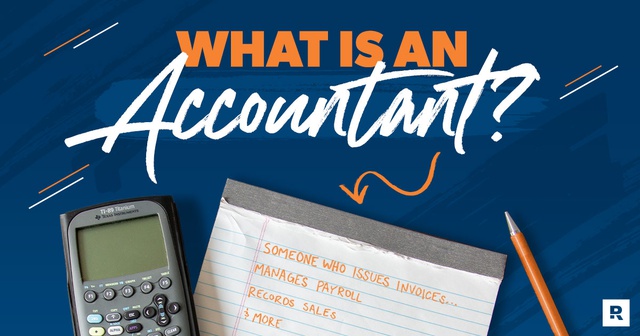What Should a Good Accountant Do?
Accountants play a crucial role in managing financial records and ensuring the financial health of businesses and individuals. Whether you’re a business owner or an individual seeking financial advice, it’s important to understand what a good accountant should do. In this article, we will explore the key responsibilities and qualities that make an accountant exceptional.
The Basics of Accounting
1. Accurate Financial Record Keeping
At the heart of accounting lies the responsibility to maintain precise and up-to-date financial records. A good accountant must possess meticulous attention to detail to ensure all transactions are accurately recorded. These records serve as the foundation for making informed financial decisions and complying with tax regulations.

What should a good accountant do?
2. Financial Analysis
Accountants should not merely record financial data but also analyze it. They should be adept at interpreting financial statements, balance sheets, and income statements to provide insights into a company’s financial performance. This analysis helps businesses make informed decisions about budgeting, investment, and growth.
Taxation Expertise
3. Tax Planning and Compliance
One of the most critical roles of an accountant is to help clients navigate the complex world of taxation. A good accountant should stay updated with ever-changing tax laws and regulations. They must assist clients in minimizing tax liabilities while ensuring full compliance with tax laws.
4. Efficient Tax Filing
Avoiding errors and delays in tax filing is crucial. A good accountant should be skilled in preparing and submitting tax returns accurately and on time. This helps clients avoid penalties and optimize their tax refunds or liabilities.
Financial Advisory
5. Budgeting and Financial Planning
Accountants should not be limited to historical financial data but should also assist clients in planning for the future. They should help individuals and businesses create realistic budgets, set financial goals, and develop strategies to achieve them.
6. Investment Guidance
For businesses and individuals looking to invest, a good accountant can be an invaluable resource. They should offer insights into investment opportunities, risks, and strategies that align with the client’s financial objectives.
Ethical Standards
7. Confidentiality and Integrity
Ethical conduct is non-negotiable for a good accountant. They must maintain the highest levels of confidentiality when handling sensitive financial information. Additionally, they should act with integrity, providing honest advice and avoiding conflicts of interest.

8. Professional Certification and Continuing Education
They should hold relevant professional certifications, such as Certified Public Accountant (CPA) or Chartered Accountant (CA). Moreover, they should commit to ongoing education to stay current with industry trends and regulations.
Effective Communication
9. Clear and Transparent Communication
They must be effective communicators. They should explain complex financial matters in a clear and understandable manner, allowing clients to make informed decisions. Being responsive to client inquiries and concerns is also crucial for building trust.
10. Collaborative Skills
They often work with other professionals, such as lawyers and financial advisors, to provide comprehensive financial solutions. Collaborative skills and the ability to work as part of a team are important qualities for a good accountant. https://cbdtax.com.au/legal/
Conclusion
In summary, an accountant is not just a number-cruncher; they are financial experts who provide invaluable support to individuals and businesses. They must excel in record-keeping, financial analysis, taxation, financial advisory, and uphold the highest ethical standards. Effective communication and collaboration skills round out the qualities of a top-notch accountant. Whether you’re a business owner or an individual seeking financial guidance, partnering with a skilled and ethical accountant can make a significant difference in achieving your financial goals.
Remember, when choosing an accountant, look beyond their technical expertise and seek someone who understands your unique financial needs and is committed to helping you succeed.

